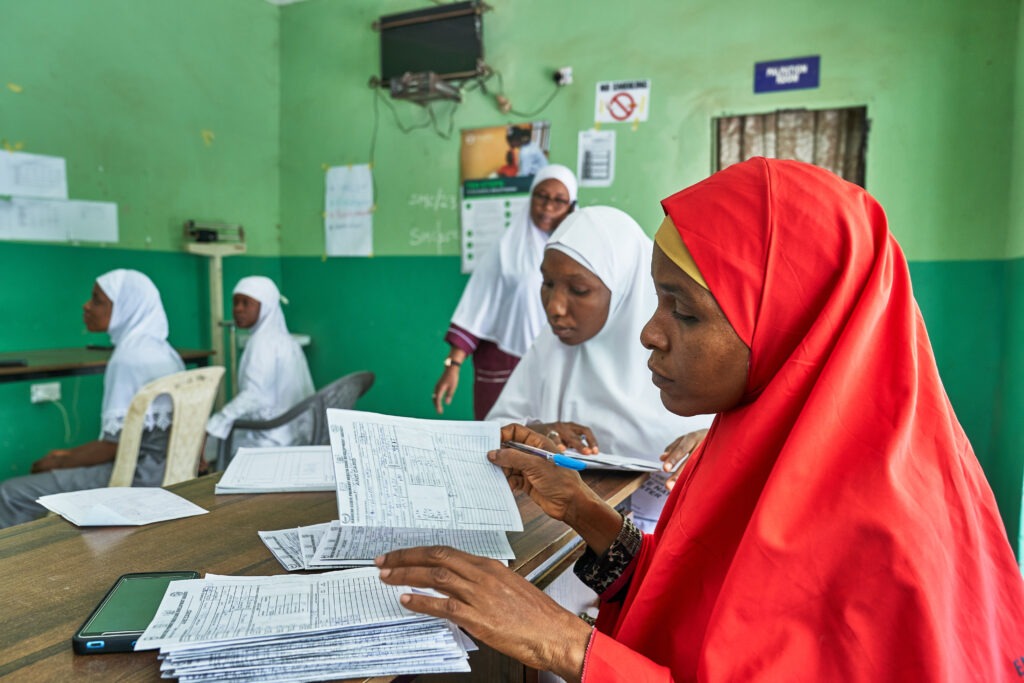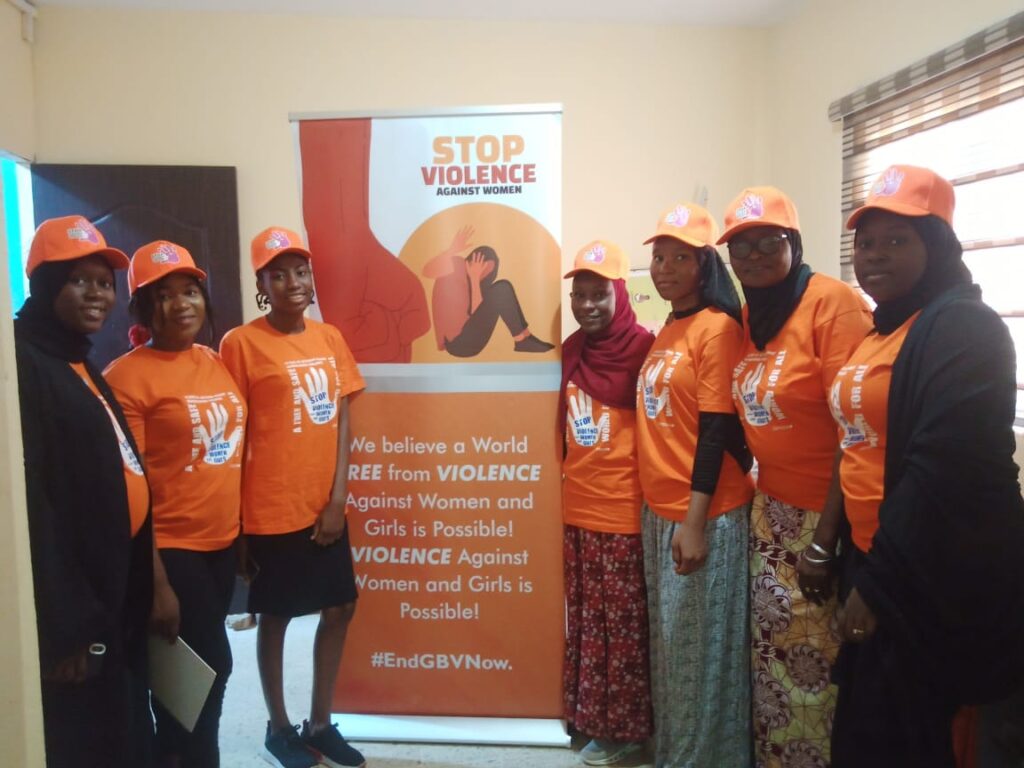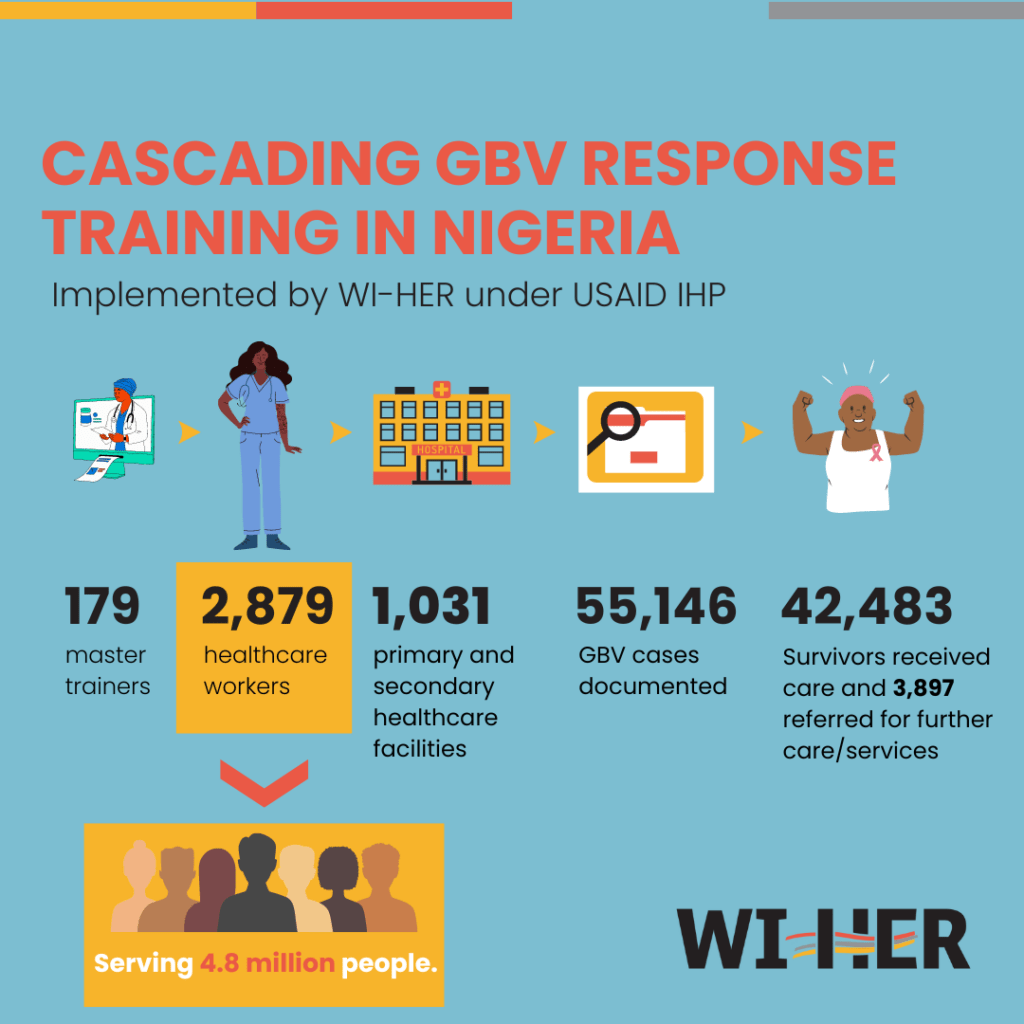Healthcare System Strengthening and Capacity Optimization: Engaging Stakeholders to Improve Service Delivery, Including in Gender-Based Violence (GBV) Prevention and Response
- Engage with local communities to understand their unique needs and address barriers to their participation in the development and implementation of health initiatives, ensuring sustainable impact and ownership.
- Conduct desk reviews and analyses and apply a gender equity and social inclusion (GESI) lens to identify and address the root causes of challenges that face the health system, including how stigma impacts access to and utilization of health services.
- Supported stakeholders in mapping GBV clinical and non-clinical services across sectors, resulting in a comprehensive referral pathway
- Provide technical assistance to local stakeholders at all levels to create an evidence-informed GBV response that ultimately increased service utilization for GBV survivors
- Convene key stakeholders to create State-specific strategies and implementation plans to ensure health services meet the needs of individuals, including GBV survivors
- Develop innovative approaches to training master trainers and healthcare workers, focusing on building capacity, cascading that knowledge throughout the system, and improving the quality of care provided by leveraging technology and community-based training methods.
- Support key stakeholders in mainstreaming gender and other inclusion considerations into policies, program designs, and guidelines that impact GBV response, while also working to improve the access to and quality of health and social services, as well as non-clinical services such as legal services
- Advocate for and support government partners in instituting line item budgets dedicated to GBV prevention and response
- Collaborate with a wide range of partners, including government agencies, NGOs, and international organizations, to fully assume ownership of the country’s GBV response and referral pathways, amplifying our impact, championing a cross-sectoral response to health challenges, and ultimately strengthening the health system as a whole.
“This training has made us to be so powerful. To face our people in our village. We feel free. We feel encouraged to apply our messages and go to the health facility and give the lectures.” – One of the GYDOs
“Gender equity cannot be achieved when strategies to correct the historical imbalance are gender-blind or gender-neutral. Any effort we put in place must be deliberate in overturning the inequalities that hold women and girls back.” – Helen John, GESI Advisor

Projects

Areas of Impact
- Global Health
- NTD Programming
- GBV Prevention & Response
- Maternal Health
- Sexual and Reproductive Health
Impact Highlight

WI-HER trained 179 master trainers in IHP-supported States in Nigeria to identify, care for, and refer gender-based violence (GBV) cases for further support. These trainers then cascaded the trainings to 2,879 healthcare workers, who serve a total of approximately 4.8 million people. Through this and other initiatives, a total of 1,031 health facilities (both primary and secondary) are now documenting GBV data, which informs state- and national-level activities and policies, resulting in 55,146 cases documented and 42,483 survivors receiving care between 2020 and 2024.